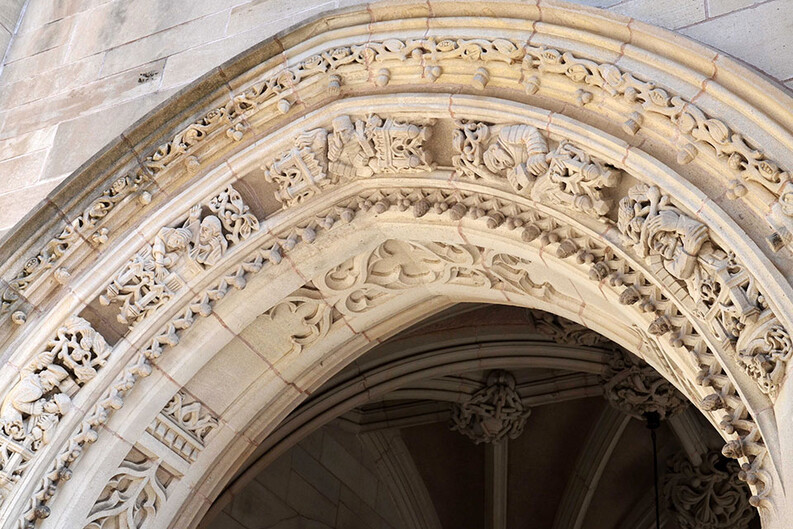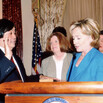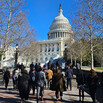Meet MFIA’s Clinical Fellows

Michael Linhorst and Stephen Stich ’17 bring backgrounds in journalism, litigation, and scholarship to their roles at the clinic
In the Media Freedom and Information Access (MFIA) Clinic, Craig Newmark clinical fellow Michael Linhorst and Local Journalism Fellow Stephen Stich ’17 work with a group of 20 Law School students on efforts to increase government transparency, defend journalists, and protect freedom of expression. From working on client briefs to teaching seminars to writing policy white papers, Linhorst and Stich’s presence is felt across the range of the clinic’s activities.

Stich first encountered MFIA as a student at the Law School.
“I discovered through MFIA that I really liked litigation and enjoyed advancing freedom of information and freedom of speech issues,” Stich said. After graduation, he did commercial litigation at a law firm until a pro bono job for an investigative journalist reminded him of what he missed from his time at a clinic. Shortly after, he applied for the Local Journalism Fellowship.
Linhorst has known all along that he was interested in both law and journalism and wanted to find a way to combine both. After stints reporting on state politics at The Bergen Record in New Jersey, doing commercial litigation at a New York City law firm, and clerking for a federal district court judge in Maine, Linhorst joined MFIA in 2020.
At the clinic, Linhorst works across the clinic’s projects. In one, he has worked on the fight against a Texas law that restricts journalists’ ability to use drones in reporting. MFIA’s petition argues that the law is unconstitutional because it violates the First Amendment right to speech and the free press clause.
“This is really important to journalists,” said Linhorst, “because drones offer a different perspective that you can’t get any other way. And for many journalists — especially local journalists — who are strapped for resources, using drones allows them to cover stories that they wouldn’t be able to otherwise.”

The clinic’s work to defend local journalists and news organizations is critical, according to Stich. “One of MFIA’s main missions is to ensure that journalists can get access to information and report on important and controversial issues without the fear that they’re going to be pursued by the government or powerful parties,” he said. “Given the economics of the media industry, local news organizations are often the ones that are most in need of free representation that allows them to do this type of work.”
Among the projects Stich has worked on as part of the clinic’s Local Journalism Initiative, a case defending local news website the New Canaanite against a defamation suit arising out of a parking dispute stands out. “Sometimes there are conflicts at parking commission hearings,” Stich said of the case. “You don’t expect them to result in a defamation suit against someone who reports on it. I feel like I’m doing a lot of good defending someone for whom it would be very difficult to defend themselves.”
In addition to their litigation work, Linhorst highlighted the importance of their role as teachers. When teaching, “you’re not only helping the client, but you’re also working with the students and helping them learn, so you get benefits on both sides,” Linhorst said. “This adds a very different dimension to litigation because it involves sitting down and talking through things with the students a lot more than you would at a law firm. That ensures that our work is very careful and more strategic, because you have to talk about every element of it, but it’s also more creative, because the students come up with ideas that we might not have thought of.”
The Media Freedom and Information Access Clinic is dedicated to increasing government transparency, defending the essential work of news gatherers, and protecting freedom of expression through impact litigation, direct legal services, and policy work.


